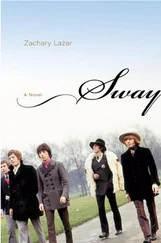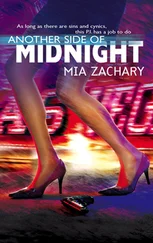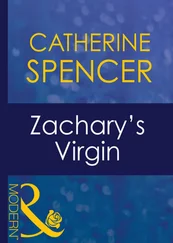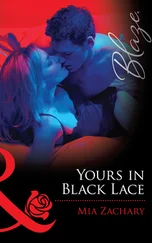“No.”
“I want to talk to a manager.” She leans in and without a word points with her nail file at a pay phone on the sidewalk across the street. I don’t move. I stare. Long pause. Why don’t I just pay for two espressos and leave as soon as possible? It is what it is. There’s no Starbucks around, there’s no Pete’s Coffee — one-fifty single, a dollar seventy-five double, a smiling, fast grad student with a pierced tongue behind the counter, helpful manager around somewhere, wireless internet, sepia photos on the walls, styled leather lounge furniture, air conditioning, intelligent music, and well-intentioned people. I left all that behind, in the big city.
I turn around and slowly walk out. I go to my car. I reach through the open window and pull out the Nikon, a notebook, and a pen. I take a few wide shots of the trailer/coffee shop. Then I go back in and without asking for permission, I start taking pictures of the girl. At first, she’s stunned. Then she remembers that she won’t look good frowning, so few shots latter, she starts smiling as she thinks she is supposed to if she wants to be in a magazine. She even tries posing. The window to the right above her provides a diffused, almost Rembrandtesque lighting. I snap a dozen shots and order a double espresso. Almost disappointed I wrapped up so quickly, she asks: “For the paper?”
“Which paper?”
“Our paper.”
“No.”
“Three dollars.”
“Three dollars.” I give her three dollars and fifty cents. Why am I doing this? Because I’m a good guy, that’s why.
“That’s it? Fifty cents?” She exclaims, disappointedly handing me an unclean ceramic cup. “Fifty cents for the pictures? Can’t you be more generous, man! Go-ss-sh!”
I give her an annihilating look, throw the camera over my shoulder, and, without a word, cup in hand, I leave. It has a faded lipstick mark on the rim, and the espresso looks thin and sour before I even try it! I pick one of the four plastic tables on the sidewalk and sit down. The table shakes and half of the liquid spills. Great. It’s going be awful anyway. I sip. I was wrong. It’s not awful. It’s disgusting.
What did I expect from the only espresso machine between Pamona, Ramona, and who knows how many more towns around here? What did I expect from rural America? What did I expect from this life anyway?
I look around. Three plastic flowerpots with artificial geraniums hang over the tables. They tremble with a breeze coming from who knows where. It’s hellishly hot outside and the air above the long, empty street stands still, but here in the shade, there’s a gentle breeze. Strange. Under the tent hang sun-bleached, fly-spattered, tiny national flags: Canadian, Danish, Italian, Japanese, Australian, French, one more Italian, and another one I don’t recognize — horizontal stripes with red on top, yellow in the middle, and red underneath it, with a coat of arms I can’t make out. On the other side of the street is a gas station under construction, temporarily enclosed in orange plastic nets. Across from it is a motel with a big illuminated turkey above the front door, The Turkey Motel. Under the turkey it says: Dances — every Friday and Saturday . So, people here do dance. A little further I see the sign, LA COCINA , MEXICAN FOOD. Next to it is a drug store which sells all sorts of things, and catty-corner from it, there’s a somewhat large restaurant named The Old Telephone.
I bend over my hundred-page notebook and start writing whatever comes to mind.
*
Although I was sure no one would ask for my original diploma, I invested two hours in Adobe Photoshop creating a new, fake diploma out of my old Bulgarian one. It looked pretty decent. The black-and-white copies looked more than authentic. I chose to have graduated with a degree in neurobiology from Sofia University. The odds that any of my prospective interviewers would’ve studied that same field were very slim, and it would make me less vulnerable to questions about it. It turned out I was right. After I was done with my education, I searched the Internet, copied the biography of a Hungarian doctor and started putting together my own monitor resume.
I made up a Bulgarian pharmaceutical company named ALPHA-PHARMA where I was supposed to have worked for several years. I created a website for this fantasy business using retouched pictures of buildings in New Jersey. I invented a Research and Development Department which dealt with clinical research. My imaginary boss was a picture of a moron I downloaded from Google images. I named him Dr. Ivan Draganov. As for my own photo, I went to a Party City store on Claremont Street, bought a white doctor’s coat for $19.99, and kept the receipt. I photographed myself smiling and then returned the merchandise. In the “References” section, I wrote a few Bulgarian phone numbers that I was sure no one would call. To ensure the American references, I bought three Motorola phones and opened three mobile telephone lines with different area codes in various parts of the country. So whoever called would have only these numbers from my job applications, and I was prepared to give references for myself.
The first job interview was scheduled around Christmas. I spent the week before that in the library, reading whatever I could about the human body, studying medical terminology — I had graduated with a degree in neurobiology after all. At night, trying to cram as much as I could about a monitor’s job responsibilities, I fell asleep on my PC. The big day came and the interview lasted three hours. When it was over, I was sweating and trembling. I felt relieved the next day when they called to inform me they had chosen another candidate. The second and the third interviews were easier, shorter, yet still unsuccessful. The fourth one went well, but ended with a conference call in which I almost fell apart under a cross examination by a German working for Lindhau Research and an Indian-accented woman, her voice amplified by speakers and soaked with suspicion.
Every interview after that was a breeze. And there were many.
A month later I had offers for second interviews from several companies. After my excellent performance at two of them, both offered me positions. I asked for an absurdly high salary at the first one, ICONIQ (honestly hoping they would turn me down), and a modest one at the second (so I could turn them down). I wasn’t sure what I was doing. Both companies agreed to my conditions.
I chose ICONIQ, a global, multinational corporation with headquarters in France and offices all over the world. The closest one to L.A. was in San Diego, so we had to relocate to the very border with Mexico, an hour and a half away from Los Angeles. Stella and I didn’t mind moving to San Diego; in a way it reminded us of our hometown, Varna.
We rented a two-bedroom apartment in the north of the city and moved our stuff over the weekend. On Monday I was in the Human Resources office, filling out paperwork. Two hours later, the thickset HR manager stood me in front of a digital camera, I said “cheese” and the machine spat out my ID card. On it, I saw my name underneath a black-and-white photo fit for an obituary.
Then I realized why they hired me so fast — they desperately needed monitors for the development of a new generation of drugs for treating clinical depression. After billions of dollars and years of work had been invested in that study, they now had information that a rival pharmaceutical company was on its way to releasing a similar drug on the market. ICONIQ was racing against the clock.
I was assigned to the team of a short, bald guy, with a pencil mustache and the face of Inspector Clouseau. His name was Scott. Scott the manager.
Читать дальше












